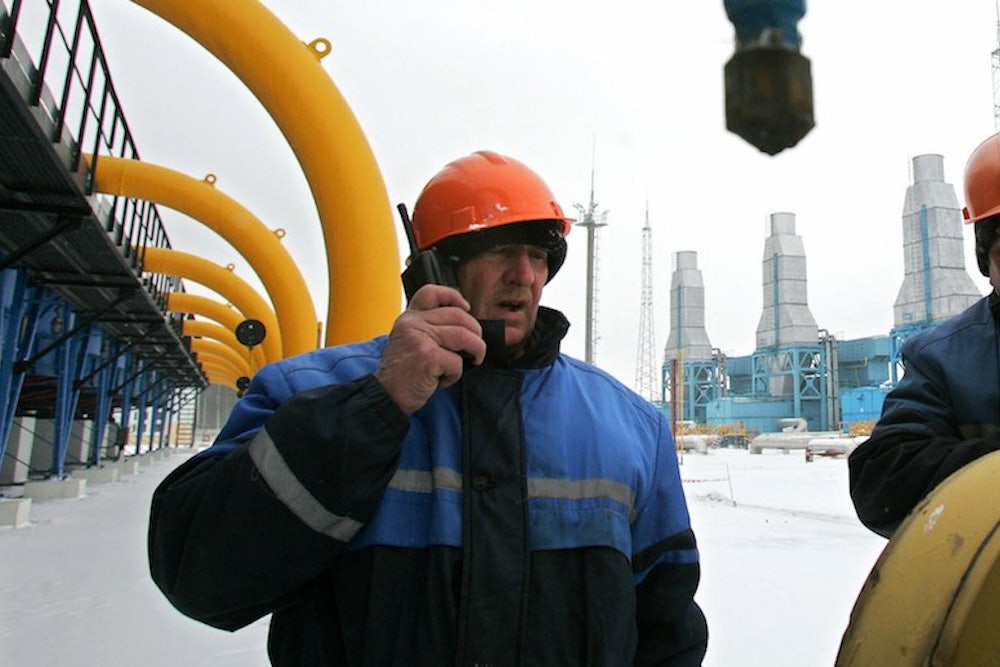With Russian troops seizing Crimea, the chance of an armed conflict in Ukraine is growing by the hour. If that happens, there would be economic costs that could ripple across the global economy—and even cause higher gas prices and plane fares in the U.S.
In general, the United States and Ukrainian economies are not deeply connected. While the crisis’s first-order effects on the U.S. economy will be minimal, it will have worldwide consequences as well. The greatest risk is the European Union’s reliance on Russian crude oil and natural gas. In 2010, 34.5 percent of the EU’s oil imports and 31.8 percent of their natural gas imports originated in Russia. That dwarfs their energy imports from any other country:
Natural gas and crude oil are both state-run industries in Russia. If the crisis continues to escalate, Russian President Vladimir Putin could respond to any actions by the international community by cutting off Russia's oil and natural gas exports to the European Union. The United States is not reliant upon Russia for crude oil (less than 5 percent of U.S. oil imports originate in Russia) or natural gas (no imports from Russia), but prices are set by the global market. Any supply shocks in Europe that send prices higher will have ripple effects that raise gas prices in the United States. Airlines and other industries dependent on oil would be hit hardest by the price hikes and any sustained increase would take a bite out of consumers’ disposable income, hurting the entire economy.
Russia has proven in the past that it will use its energy exports for political purposes: It closed pipelines carrying natural gas to Ukraine as recently as 2009. But cutting off natural gas and crude oil exports to the entire European Union would be a drastic step for the Kremlin, which relies on revenues from those exports to fund the government, as this graph from CEIC Data shows:

In 2012, 84 percent of Russia’s oil exports and nearly 80 percent of their natural gas exports went to the European Union. Closing the pipelines to most of Europe would leave a massive hole in the country’s budget. That may be something Putin deems necessary, but he won't take such steps lightly.
While energy production is the biggest economic risk from the crisis in Ukraine, there are other implications as well. Stock markets across the world will likely open down on Monday with investors afraid that geopolitical disruptions will inhibit economic activity. Those fears will also send investors fleeing into safe assets—those with a low risk of default—like U.S. Treasuries. That could also lead to lower interest rates and disrupt the stock markets in emerging economies.
The European Central Bank is meeting Thursday to set monetary policy. The ECB has been trying to stop deflation from taking hold across the Euro area. In November, they unexpectedly cut interest rates to 0.25 percent and kept them there in February. It’s unclear how the crisis in Ukraine could affect the ECB’s decision-making, but it could give them an extra incentive to further loosen monetary policy to combat any growing investor fears.
Lastly, any asset freezes or economic sanctions on Russia would also have a more significant impact on the European and American economies, especially if Putin responds in kind. But given the volatility of the entire situation, it’s tough to predict how any events will affect the global economy with any confidence.

